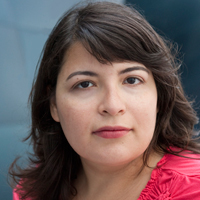According to The State of World Fisheries and Aquaculture 2012 report from the Food and Agriculture Organization of the United Nations (FAO), fish accounts for 16.6 percent of the world population’s intake of animal protein. And, in 2011, fishermen and women, fish farmers, and those supplying services and goods to them accounted for the livelihoods of almost 820 million people, 12 percent of the global population.
These figures demonstrate that fisheries and aquaculture (essentially fish farming) are an important part of the global economy, and critical to both food security and nutrition. But fisheries are in danger of collapse due to overfishing (80 percent of fisheries are fished beyond sustainable limits), pollution, and overcapacity due to technological advances. Fishery collapse leads not only to food insecurity for billions of people, particularly those in developing nations, but also to economic hardship for the millions working in the industry.
Olazul (translated as "blue wave") seeks to address both the social and environmental impact of fishery collapse by building community-scale aquaculture systems that innovate new alternatives to conventional large-scale industrial farming systems while providing local fishing communities with an economically viable product and business model.
The Olazul story
Beau Perry, Olazul’s founder, loves to travel and surf. He’s spent a lot of time over the past ten years traveling on the Baja Peninsula, where he witnessed firsthand the decline of coastal ecosystems and fishing communities. When a classmate in Presidio Graduate School’s MBA program introduced him to the concept of aquaculture, he saw an opportunity to address both social and environmental issues related to fisheries collapse. Perry founded Olazul in 2009 to create scaled down aquaculture systems that small fishing communities facing huge declines in fishing could use to replace their lost income. He aimed to make these systems more efficient and ecologically sound than larger industrial counterparts.
Olazul is a 501(c)3 mission-based social enterprise. It plans to build revenue streams but sees that primarily as a way to create positive social and environmental outcomes. According to Perry, that makes Olazul’s aquaculture systems markedly different, and in some ways more financially viable. By creating innovative smaller units designed to work within local ecosystems, Olazul can also ensure that the communities retain equity in the project. The fishing communities keep the prototype systems, contribute to the creation and optimization of those systems, and reap the benefits in revenue and knowledge. And once there are several nodes on the network of rural farmers, they can share information amongst themselves, leading to deeper innovation and an open source community around community scale aquaculture.
Olazul is also seeking to eventually develop a secondary revenue stream by licensing the intellectual property developed through this process to commercial mariculture operations, which comprise a rapidly growing global sector. Shares could also be distributed back to the local fishing communities who contributed to the intellectual property. For example, Olazul is currently designing an offshore growout system for native shrimp as part of a pilot project in La Paz, Mexico, as well as a new way of feeding the shrimp; both are commercially viable innovations that larger fish farms may want to license.
Olazul’s shrimp aquaculture systems are still in the research and development phase. It is currently conducting its first pilot project in La Paz, and plans to expand further in the region over the next five years, with possible expansion in Indonesia and Southern Africa beyond that. The project in La Paz includes farming shrimp (so far they have a 99 percent survival rate at stocking, very high compared to industrial farms) and an organic model where they use probiotics to maintain healthy shrimp from hatchery to harvest. They plan to do their first harvest in the spring of 2013. Perry also reported that the social side is working well, with targeted stakeholders firmly at the center of the innovation and quickly gaining the knowledge to take it further on their own.
If you’re interested in supporting Olazul, you can make a donation here. They are also seeking in-kind support like technical expertise on food production operations, finance, and legal support to create the social enterprise model.
[image credit: Jos Hill]

Shivani is Principal at Friday Consulting, where she works with food and technology startups on strategy, finance, and business planning. She is also a founding consultant at AchieveMission. Shivani holds a BA from Stanford University, and an MBA from Presidio Graduate School. Follow her on twitter @shivaniganguly.














